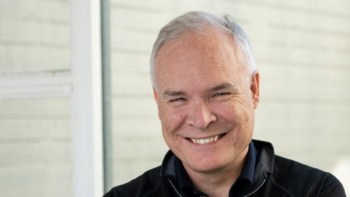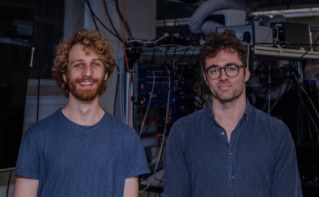The entanglement of quantum bits (or qubits) is what should allow quantum computers to perform certain calculations much faster than the computers we use today. But now, physicists in Germany and Canada are saying that most qubits could be “too entangled” to be of any use in quantum computers.
At the heart of any quantum computer qubits that are entangled — which means that they that have a relationship that is much stronger than that allowed for in classical mechanics. In qubits that are photons, for example, “1” and “0” could be represented by two different polarizations states. If two photons are entangled a measurement of the polarization of one of the photons would reveal the polarization of the other — no matter how far apart the photons are.
It is this phenomenon that can be used to perform certain calculations much faster than conventional computers.
Is more entanglement better?
The conventional wisdom is the greater the entanglement the better — but an important question facing anyone trying to build a quantum computer is whether any entangled state could be used to perform quantum calculations.
For most states, no such trick exists David Gross, University of Braunschweig
If it doesn’t matter, one could choose the entangled state that is technologically easiest to work with to create a computer. But, if only a few suitable states exist, the challenge becomes how realize these specific states in a given physical system.
Any useful quantum computation must ultimately involve measuring the values of the quantum states. However, if one measures the state of an individual object, the statistical nature of quantum mechanics means that the result will be random — and completely useless for doing quantum computations.
Correlations are key?
All is not lost, however, because the outcomes of measurements on several entangled objects are correlated — and it is these correlations that could be used to do calculation. Physicists have proposed specific schemes for measurement-based quantum computation (MBQC) in which such correlations could be used to perform calculations. However, it is not clear whether there exists a universal approach that would work with any system in an entangled state.
Now, David Gross of the University of Braunschweig and colleagues at the University of Potsdam and the Perimeter Institute have show that “for most states, no such trick exists”. The team came to this conclusion by studying a general system of highly-entangled qubits used to perform a certain mathematical calculation. They were able to prove that the number of states that could actually be used to perform the calculation was incredibly small — meaning that entanglement would not speed up the calculation at all (arXiv:0810.4331).
This result is sure to disappoint physicists who are trying to create real-life entangled systems in the lab because it suggests that most states can never be used to perform quantum calculations — no matter how hard they try.
The good news, according to Gross, is that certain special systems — some of which have already been discovered — can still fulfil the requirements of universality. The key to quantum computing success could therefore be to first identify these special systems, and then try to realize them in the lab.



